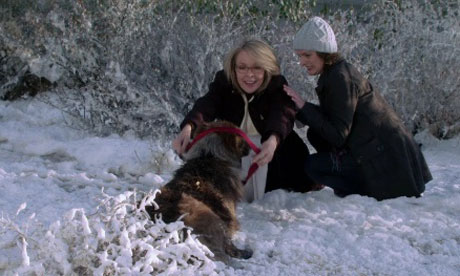|
|
BOP Interview: Lawrence & Meg KasdanBy Ryan MazieApril 26, 2012
LK: I make so many ensemble films where there are a lot of characters and not one protagonist. And the result of that is you see a family forming and falling apart. Even The Accidental Tourist, which is based off of a wonderful novel by Anne Tyler, is really about the main character’s family falling apart and how he has to form a new one with Geena Davis. Silverado is absolutely about families trying to get together and new families forming. I think it is a major thing for me and a major interest for me. Here we obviously have generations, as you say, dealing with each other, which is always complicated. I was wondering how your opinion on family over the years has changed the way you see it. MK: We have two sons and they are grown up. We have a grandchild. I think that experience, of raising children; of having them go out in the world and having them start to form their own families, is central in our lives. Family is a reference to us in every conversation. LK: When you have children, your life changes forever. Something really rich and wonderful comes into your life. And you have fear. Fear is a concern for something beyond yourself. It starts when you fall in love with someone and are committed to them. But you know that marriages fall apart, people do separate. But once you have a child, that connection is never broken and you feel responsible. You never have peace when you have a child. You always ask, “Where are they?” Even when they get to be 30 years old, he is still your son. Our oldest son has a little boy and they are going to have more and right now we are very involved with the next generation. “Where is he?” (laughs).
|

|
|
|

|
Saturday, May 4, 2024
© 2024 Box Office Prophets, a division of One Of Us, Inc.


